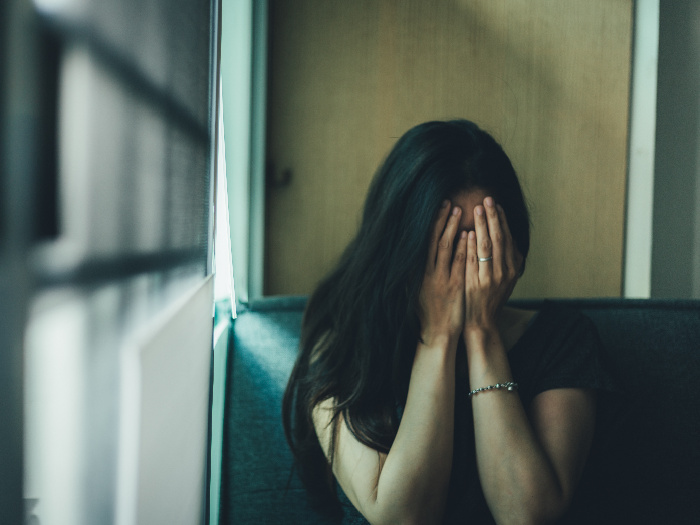When a panic attack sneaks up on you, all you really want to do is find effective ways to stop it right away. Oddly, during a panic attack, you are too encumbered, and probably too scared to come up with ways to stop it. If you have experienced such an attack and felt helpless, you ought to know how to stop a panic attack in its tracks.
How to Stop a Panic Attack?
The origin of a panic attack, often, lies in a conscious or subconscious fear. This triggers a fight-or-flight response in the brain, however, against an assumed threat rather than a real one. This, in turn, leads to one of the symptoms, or even some other ones that might be distinctive to you.
Irrespective of which or how many symptoms you experience, your efforts are bound to be directed towards putting a halt to that experience. So how can you stop a panic attack in its tracks? Here are the top things you should do when you feel a panic attack coming on.

According to the Anxiety and Depression Association of America, a panic attack has symptoms such as palpitations, pounding heart, or accelerated heart rate. Photo Credit: Shutterstock
Acknowledge & Accept
As counterproductive as it might sound, especially when you really want to be able to run away from it all, acknowledging a panic attack is the first step you could take to start feeling better. Not knowing what you are going through will only add to your fears and panic. Start by educating yourself beforehand and recognizing your symptoms from previous experiences. You might experience some of the following:
- Breathlessness, or shallow breathing
- Heart palpitations
- Intense fear
- Tightness, pain, or discomfort in the chest
- Abdominal discomfort
- Sweating
- Shakiness or trembling
- Nausea
- Dizziness
- Numbness
- Feeling that you are about to blackout
- Feeling that you are going crazy
- Depersonalization, or the feeling of a surreal, out-of-body experience
- Fear that you might be dying
Some might also experience limited-symptom panic attacks. The Anxiety and Depression Association of America describes it as similar to panic attacks, but the number of symptoms limited to four or less. It also further elaborates that the difference between anxiety and a panic attack is the duration and intensity of symptoms, which are intensive in the latter. [1]
Once you tell yourself what it is that you are going through, you are helping your brain register that the threat is assumed. It might help you lower the intensity of this experience.
Accept that it is something that will pass, and you need not be worried about any life-threatening consequences.
Progressive Muscle Relaxation Technique
The physical symptoms of your panic attacks are also affecting your muscles, probably making them rigid and tense. To relieve this, you can start by opening and closing a fist. Move this fisted forearm to flex your upper arm muscles. Repeat the same moves on the other hand. Depending on the intensity of your attack and how this feels, you can use the progressive muscle relaxation technique and move on to your toes, upper arm, forehead, and so on. [2]
Mindfulness Exercise
Take yourself away from your thoughts by bringing to your notice the elements around you. Even if you are in a closed setting, try to notice color, texture, or smell and name it. Even if you cannot or do not want to talk, do this consciously in your head. It takes you away from the fears towards your actual situation and the more pleasant elements in it.
Lavender Aromatherapy
Essential oils or other sources of an aroma which is uplifting to you should be kept accessible. According to a 2017 study published in The Mental Health Clinician journal, essential oil of Lavender was observed to have properties of an anxiolytic agent. Alternatively, you could also use rose, basil, chamomile, patchouli, or any such oil which makes you feel better. [3]
Mantra Chanting
You might not have the strength or the will to actually use your voice but start a dialogue with yourself. Have a chant that makes you feel better. Make it something that assures you that you will get through this. However, do not say something that denies the existence of your panic attack or tells you that it is not something you want to go through. Instead, tell yourself that you will get through this fine, no matter how scary it seems at the moment.
Simple Breathing Exercises
While you might be experiencing difficulty breathing, it is advisable to give attention to it, as much as you can without stressing yourself. Once you can, start taking deeper breaths. It will help you stabilize.
Let it Pass
Trying to stop it by forcing yourself might worsen it. Instead, try to calm yourself and let it pass. It will end, and you will realize that you are fine and don’t have to be afraid.
Like the to do’s of how to stop a panic attack, there are a few don’ts as well. Do not tell yourself to calm down or draw your attention towards how you shouldn’t be having one. The key to getting through it is knowing that you ought to let it pass, and it shall.
As scary as they are, panic attacks are not meant to last. They will not harm you. Furthermore, there are some long-term practices that you can adopt when dealing with panic attacks. This includes exercises, meditation, a healthy diet devoid of smoking, alcohol, drugs, and if needed, even caffeine.
While this information might prove helpful when you feel another one coming up, it is no reason to keep experiencing them. It is always advisable to seek help for your anxiety. Even if you are not comfortable to approach a therapist, you can try the option of online counseling. Seeking help is the best way of self-care when it comes to anxiety and panic attacks.
